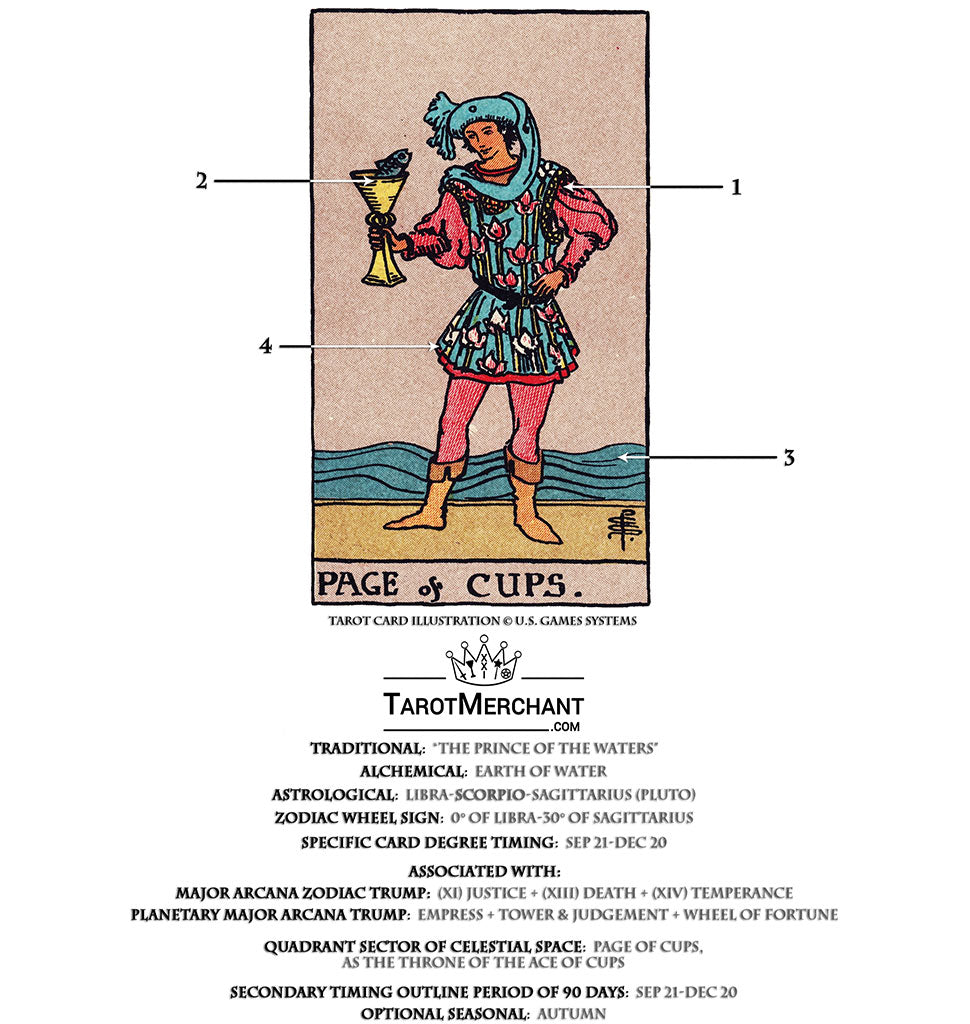The Cups suit in the Tarot is synonymous with emotional depth, intuition, and the nuanced realm of human relationships. It encapsulates the fluidity of water, representing the energy of love, connection, and empathy. Each card within the Cup’s realm conveys a unique message, urging the querent to probe beyond the surface and explore the fathoms of their emotional landscape.
The essence of the Cups lies in its ability to reminisce about emotional experiences, evoking memories of joy, sorrow, and everything in between. These cards serve not just as a reflection of one’s emotional state but also as a guide towards a deeper understanding of oneself and one’s interactions with others. When you delve into the Cups, you embark on an introspective journey, one that promises profound revelations and transformative insights.
At the core of the Cups suit, the imagery often evokes feelings of nostalgia, creativity, and compassion. The representations frequently include vessels brimming with water— a metaphoric indication of the abundance of emotions one experiences. To unravel the meaning of each card within this suit, it becomes imperative to appreciate the symbolic nuances that make the Cups a central fixture in Tarot readings.
The Ace of Cups, for instance, heralds new beginnings in love and emotional wellness. It embodies the promise of fresh starts and overflowing potential for joy. This card signifies the emergence of opportunities that nurture emotional growth, often allowing the querent to delve into uncharted territories of happiness. When this card appears in a reading, it is an omen to open oneself to love, joy, and the essence of life.
Conversely, the Two of Cups speaks of the harmony found in relationships. Often depicted as two figures exchanging cups, this card embodies union. It is not only a representation of romantic connections but also of platonic relationships that foster mutual respect, understanding, and partnership. This card encourages individuals to forge deeper bonds, underscoring the impact of collaboration and emotional sharing in their lives.
The Three of Cups is a jubilant celebration of camaraderie and friendship. Signifying gatherings and joyous occasions, it invokes a sense of community and festive spirit. This card gently nudges individuals to appreciate their support systems, encouraging them to cherish and engage in shared experiences that nourish their emotional well-being. It reflects the importance of sharing one’s journey with others, ushering in unity and communal joy.
As one progresses to the Four of Cups, the narrative shifts dramatically. This card embodies contemplation, introspection, and a sense of disconnection from one’s surroundings. Depicted often as an individual lost in thought, it serves as a reminder to reassess one’s emotional needs and desires. Often, this card encourages individuals to reflect on what truly brings them joy and fulfillment, perhaps hinting at a need to change perspective to uncover hidden blessings.
Transitioning to the Five of Cups leads individuals to consider loss and grief. It portrays a scene that is often somber, highlighting the pain of past disappointments. However, it also serves as a poignant reminder that while grief can be overwhelming, recognizing what remains can be equally powerful. This card encourages acceptance and healing, urging individuals to process their emotions rather than languish in sorrow.
Similarly, the Six of Cups transports you to the past, invoking nostalgia and childhood memories. It elicits a sense of innocence and harmony, reflecting on the dreams and joys of youth. This card can indicate a longing to reconnect with one’s roots or an invitation to derive foresight and happiness from past experiences. It speaks to the unending cycle of emotional exploration, reminding individuals that their history is integral to their present identity.
The Seven of Cups introduces an element of fantasy and illusion; it encourages a careful assessment of the myriad choices available. Often depicted with an array of cups filled with fantastical objects, this card calls for discernment and clarity. It is an invitation to ponder one’s aspirations and desires without becoming ensnared by unrealistic expectations. This card suggests a shift in perspective, encouraging individuals to ground their dreams in reality while maintaining curiosity about potential outcomes.
The Eight of Cups symbolizes the act of emotional departure. Whether it signifies abandoning unfulfilling relationships or a job that no longer resonates, this card embodies the courage to seek a more profound purpose. It symbolizes self-discovery and the pursuit of emotional authenticity. Embracing this card calls for introspection and integrity, prompting individuals to take a bold step towards fulfilling their emotional aspirations.
In contrast, the Nine of Cups often refers to a state of emotional fulfillment and satisfaction. It is commonly seen as the “wish card,” echoing sentiments of contentment and joy. This card beckons individuals to relish their accomplishments and appreciate the warmth arising from their emotional investments. However, it also encourages a mindful approach to gratitude, lest one become complacent and neglect further ambitions.
Finally, the Ten of Cups culminates the emotional journey of the Cups suit, representing ultimate happiness and harmony within interpersonal relationships. This card is a beacon of hope, denoting a sense of emotional completeness, often celebrated in familial dynamics. It signifies a culmination of emotional endeavors, suggesting that fulfillment and joy can be found in a supportive and loving community.
Embracing the messages of the Cups invites introspection, emotional connectivity, and a curiosity for what lies beneath the surface. Whether it’s through love, loss, or reflection, the Cups suit serves as a powerful collection of insights. Each card encourages individuals to shift their perspective, fostering personal growth and a richer understanding of their emotional selves.







Leave a Comment